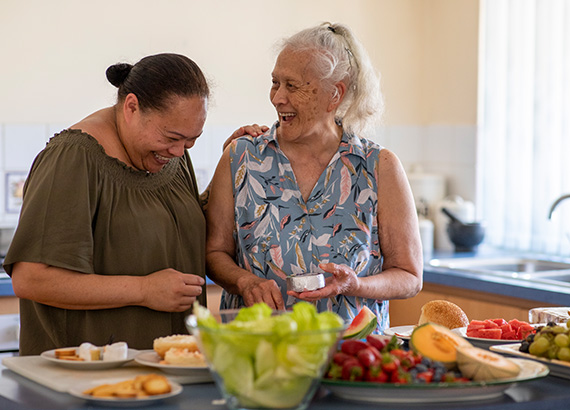Healthy Eating as You Age: Part Two

Welcome to Part Two of our Healthy Eating as You Age series. In this post, we’ll cover two main areas: (1) Dietary Guidelines for Healthy Eating and (2) Tips for Healthy Eating.
At Vermont Aged Care, we thoughtfully plan menus to support our residents' health and well-being. If you’re caring for an elderly loved one, these guidelines and tips may be beneficial.
Dietary Guidelines for Healthy Eating
Dietary guidelines are created to provide evidence-based advice on eating healthily. They outline the types and amounts of foods that promote well-being, which is particularly important for older adults, who may experience quicker effects from unhealthy foods. Seniors often have unique dietary needs and can be more sensitive to nutritional imbalances.
Following dietary guidelines can yield several benefits. They help in maintaining overall health, reducing diet-related conditions like high cholesterol and high blood pressure, and lowering the risk of chronic illnesses such as type 2 diabetes, cardiovascular disease, and certain cancers. Additionally, the guidelines play an essential role in combating obesity, a growing concern in our modern world.
Learn more here: Australian Dietary Guidelines
Tips for Healthy Eating
Managing Weight
Maintaining a healthy weight is crucial for seniors. Being overweight can strain both the caregiver and the elderly individual, impacting overall quality of life. Sedentary lifestyles and nutrient-dense foods can lead to weight gain, so it’s beneficial to focus on nutrient-rich, lower-calorie options.
The Importance of Breakfast
Encourage your loved one to eat a healthy breakfast daily. Skipping breakfast can lead to low energy levels before lunch and may cause overeating at midday. Help them choose nutritious options they enjoy to set a positive tone for the day.
Healthy Eating Habits
Encourage your loved one to listen to their body’s cues and avoid overeating, as this can disrupt sleep and digestion. Regular mealtimes help provide steady energy, promoting a more active lifestyle and reducing the need for between-meal snacks. Eating with family is also beneficial for emotional well-being and can encourage balanced food choices.
Providing vegetables and protein at meals is essential. Vegetables are rich in fiber and easy to chew, making them ideal for seniors. Consider cooking vegetables they enjoy to make mealtimes more pleasant.
Recommended Reading
- About Australian Dietary Guidelines
- How Much Do We Need Each Day?
- Tips for Eating Well
- Choosing Nutritious Foods
This blog is intended for general guidance. Please consult your family doctor for personalised advice, or for professional advice and support for residential aged care, contact Vermont Aged Care.

